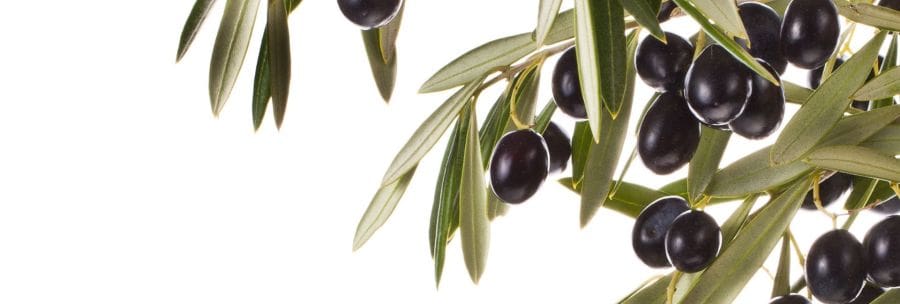
Wild Olive Branches: The Blessing of Being Grafted In
As Gentile believers in Jesus as the Messiah (a.k.a. Christians), Paul says in Romans 11 that we’re “wild olive” branches and that we’re “grafted in” to the “olive tree” to become partakers in the original tree – God’s promises to His people. Paul’s analogy is descriptive, showing how Gentile believers have a part in the Kingdom of God.
And I like being called a wild olive branch, don’t you? It sounds like we’re untainted in our wildness yet dignified in that we’re part of something rich and established. While this may be part of what Paul meant, there’s a lot more in this analogy for us as Christians.
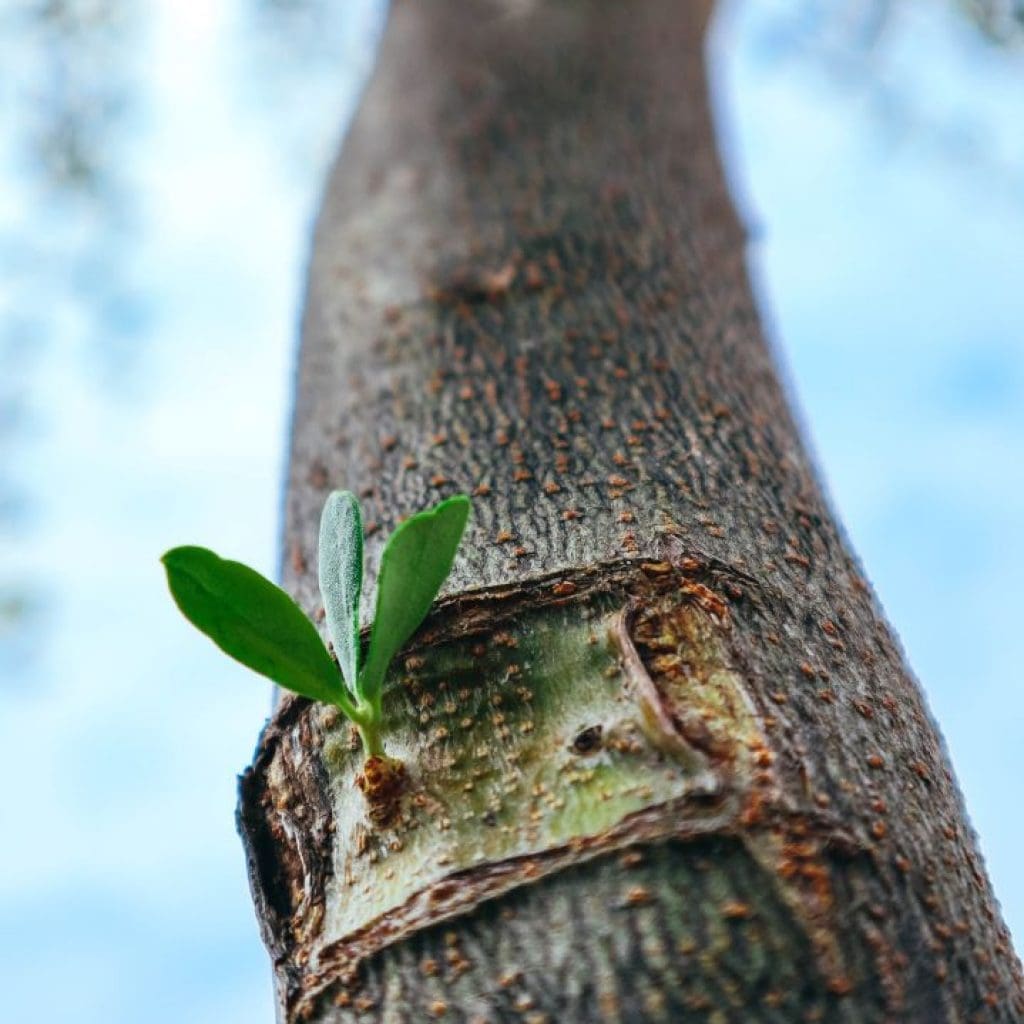
Before the Wild Branch
To get some background, look at what’s going on at the beginning of Romans chapter 11. Paul is in the middle of telling his Jewish audience that they missed the messiah. By rejecting Jesus, they missed the message of grace they were offered and were still focusing on being saved by their works while waiting for the messiah. Verses 11-16 describe how the Gentiles have a chance at the Messiah because Jesus’s own people rejected him. Paul still wanted the Jewish people to see their need for Jesus (and some of them did!), but he describes their rejection as the “reconciliation of the world” (Rom. 11:15).
How blessed we are, Brothers and Sisters? It is so sad that God’s people, the Jews, shunned the messiah they had prayed for over so many years, but God brings a blessing in even something as heartbreaking as this. And it’s for us! Because of this, we have access to Israel’s Messiah, now the Savior to the entire world!
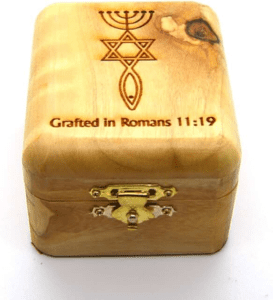
About Grafting
I love gardening more than most, but I haven’t attempted grafting. It isn’t easy. It’s an expert-level sort of thing. A tree farmer must do a graft correctly and carefully and take great care of the scion – the area where the two trees are attached. Even after a LOT of work and attention to detail, the graft may not take! Even when it does take, the new offshoot may not be productive. A well-grafted branch not only grows but also produces well.
Grafting only works when the new branch is of the same family as the original tree. For example, you can’t graft a cherry branch onto an orange tree. A successful graft requires a sort of “communication” between the old and new trees, which can only occur between trees of the same type.
A Farmer’s reasons for grafting may vary, but the overall goal is to get the best of both varieties. Combining the trees into one shouldn’t obscure the character of one and highlight the other but reserve the essence of both. Generally, one of the two trees has quality rootstock, and the other produces desirable fruit. Grafting gives the gardener the best of both worlds – a tree with solid roots and good fruit. The nature of each tree is reserved while allowing the best qualities of both to shine through.
Two Types of Olive Trees
In the Middle East at the time of Paul and today, two main olive tree types are commonly grafted – the wild and the cultivated varieties. The cultivated trees grow olives used for food and to produce olive oil. Wild olive fruit isn’t as flavorful and is not usually eaten. Grafting won’t make a wild branch produce olives of cultivated quality or change the solid root structure of the original tree. It would, however, allow the wild branch to benefit from the established roots and healthy base of the cultivated tree and help it to produce healthy fruit of its unique variety.
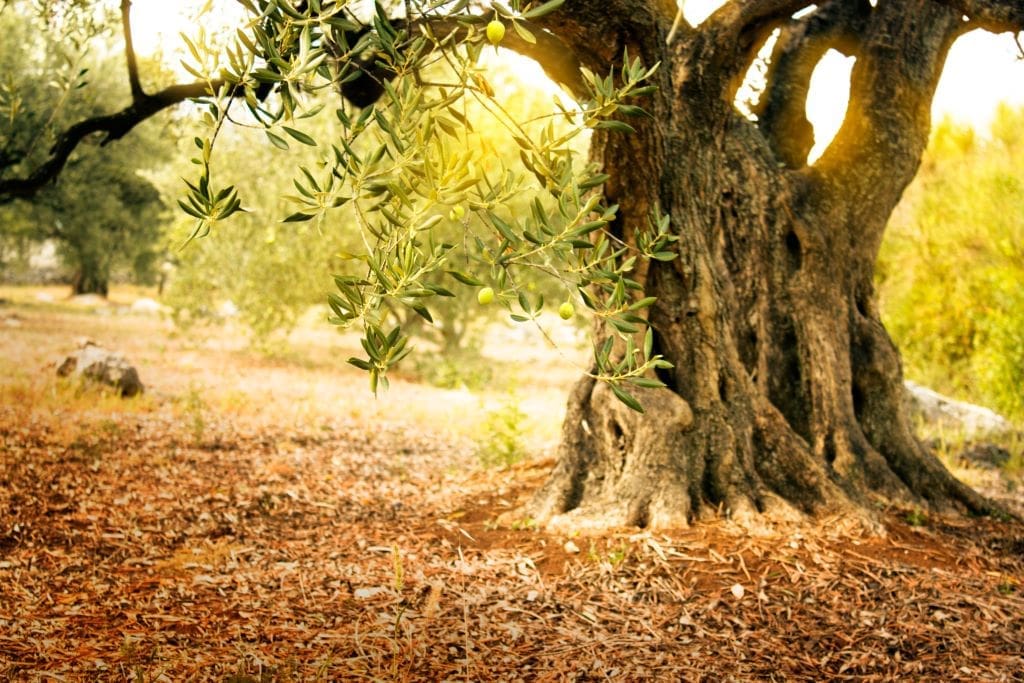
Understanding Paul’s Symbolism
To clarify Paul’s analogy, Gentiles that recognize Jesus as the messiah and thus their need for him are the wild olive branches. The cultivated olive tree and its roots represent the promises of God given to Abraham, Isaac, and Jacob in the Old Testament. He is saying that, although God made these promises to the Jewish people, we have a part in them, as Gentiles, due to our belief that Jesus is who he says he is. Our faith strengthens us and allows us to be “sons of Abraham” (Gal. 3:7).
So, now that we’re grafted in, what are we? While the grafting process entitles us to be heirs to God’s promises to the Jews, it does not make us into Jews. After the graft, we maintain our original character – Jews stay Jews, and Gentiles stay Gentiles. The change is that we’re then one in our Messiah, Jesus.
The Branches Broken Off
When grafting, cutting some branches off the original tree is usually necessary to allow space or a better nutrient load for the new branch. Paul says in his grafting analogy that Jesus came to save his people, the Jewish people, but most of them rejected him as the messiah. He says that these branches were “not spared” and that they were “hardened.” Sadly, the Jewish people who did not recognize Jesus as their messiah were broken from the tree of God’s promises.
But Paul doesn’t stop there. He states that God will never abandon His people Israel. Also found in 1 Samuel 12:22 and other places, God is clear about His undying love for the Jewish people. Paul continues, saying that God will readily re-graft them when they turn from unbelief.
He also says that it was the disobedience of the Jews in rejection of Jesus that made a place for Gentile believers in the Kingdom of God. Because they fell away and were broken from the tree, we can now be grafted into that tree where we wouldn’t otherwise have had a part. This redemption is just part of God’s character. He makes a perfect plan, and people mess it up, then he brings blessing out of the terrible situation that is beyond what we could have imagined. It’s part of who He is!

The Job of Grafted Branches
What should our lives look like today as successfully grafted wild olive branches? How do we reflect our roots while maintaining our Gentile character? Paul answers this as well.
- Stay humble. Paul first warns us of arrogance. Because branches were broken off, allowing us to be grafted in does not give us the right to think of ourselves as superior to the Jewish people. In verse 18, he said that we should remember that it is the root that supports us and not the Gentiles that support the root. As branches that benefit from the root, Christians should stand firmly against anti-Semitism and work diligently to bridge the deep chasm between Christians and Jews that has been built throughout history.
- Pray for the Jewish people. Praying for their salvation should be our prayer for the Jewish people today. If seeing them turn to Christ and be re-grafted in is a desire of God’s heart, it should also be ours!
- Learn more about the tree. Being grafted in brings the opportunity for salvation to us as Gentiles. Some Christians say that the Old Testament is no longer relevant to our faith, but this couldn’t be further from the truth! Genesis 12:1-3 contains God’s promise to Abraham to give him land and numerous descendants and to bless all the people of the earth through him. But the whole bible contains our story as God’s people, from Genesis to Revelation. God’s character is revealed throughout His word, and we should make it our life’s work to get to know Him and the promises (both fulfilled and yet to be) upon which our faith is built.
- Have a faith worthy of jealousy. Not in a middle school mean girl way, but one where our faith is so pure and solid that outsiders, including Jews, want what we have. Paul suggests that this jealousy was one of the reasons salvation was extended to the Gentiles. Is your faith capable of making someone jealous for it? Do outsiders see your relationship with the God of the Bible and hope in our Savior and want that in their own lives?
- Produce good fruit. Like a grafted branch, we are to be productive offshoots. In John 15:8, Jesus says, “My Father is glorified by this, that you bear much fruit, and so prove to be My disciples.” We glorify God by bearing good fruit, including the fruit of the Spirit from Galatians 5:22-23.
The analogy of being grafted in as wild olive branches demonstrates how we, as Gentiles, have access to God’s promises to the Hebrew people. Without this grafting and some branches being broken from the original tree, we wouldn’t have a part in these promises and wouldn’t have our Messiah, Jesus. As successfully grafted and productive branches, we should produce fruit that glorifies God and humbly honor our roots and the spiritual nutrition they provide.

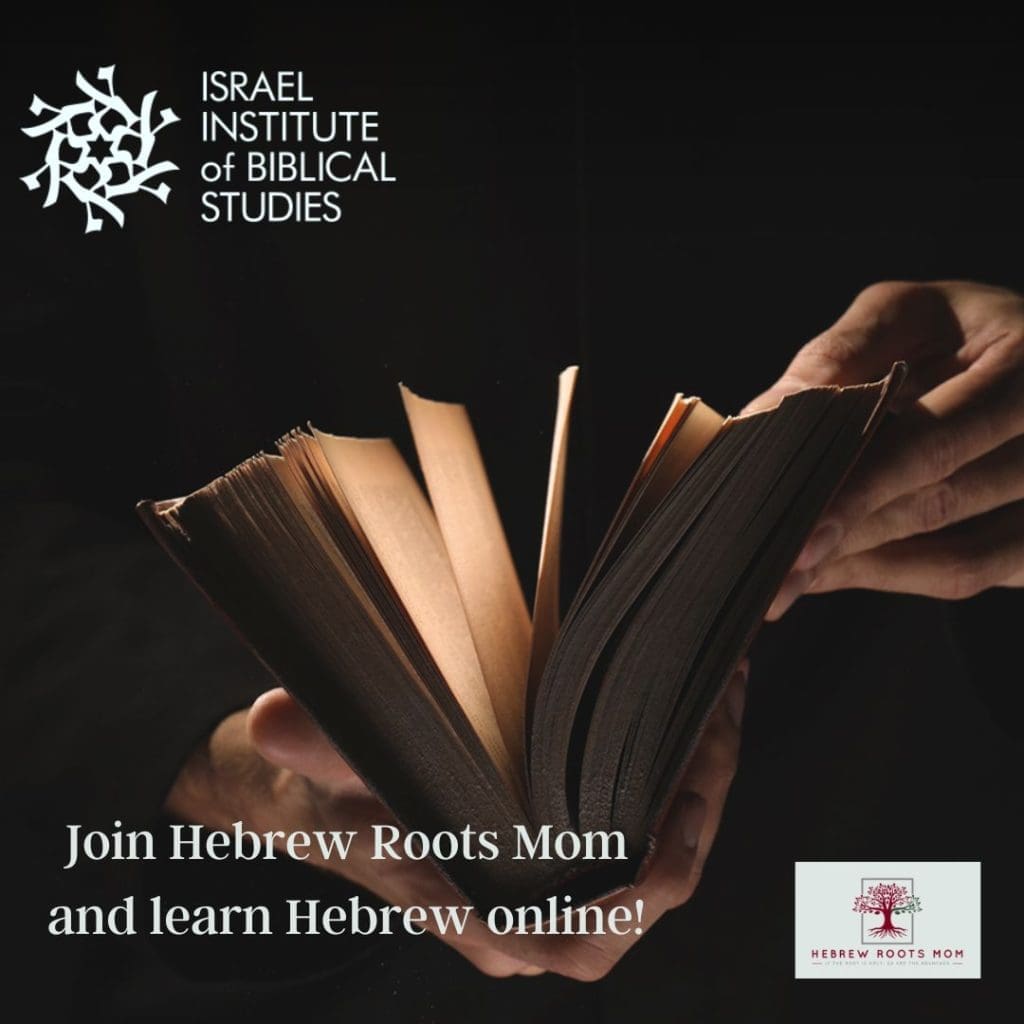


I love your message here about grafting. I’ve used it in my local assembly to illustrate our place in Christ. But I’m wondering, having been grafted, do we remain gentiles, knowing the implication of being a gentile? Put differently, having been grafted, do we remain wild? It’s all about ancestry and identify
Thank you for this page, it has helped me a lot in the process of walking in the Hebrew roots of our faith. I only find one detail… why continue considering ourselves Gentiles if we are now a holy nation? I consider that the term is something that describes our life before YESHÚA our Messiah, but that now it is His character that must be manifested in our life.
Thank you for your message. Could you email the text please?
Thank you.
Toda, toda–excellent blog and images. So appreciated.
Hi, I’m a graphic designer for a church in the Midwest. Our pastor is a converted Jew and is preaching on the verse from Romans 11. The photo of the small graft into the big established tree is a wonderful photo, and would be a great image for what he is speaking on. Would you be OK with me using it in the sermon graphic I design? Thanks, Evelyn
Sure! But please credit me as I do own the graphic. Shalom!
A Jew is never “converted”. Yeshua was, is and always will be a Jew. His Jewish disciples were never “converted. They were completed in Yeshua as their Mashiach.
When we come to faith in our Messiah Yeshua it is a completion. We are not grafted in.
Gentiles are grafted into the House of Yisrael. When a Gentile is adopted into the Family House of Yisrael, they then become and do as the family does.
Hope this is helpful.
Welcome to the mishpocha.
Shalom Shalom
😊🇮🇱💕🙏🏼
I so love my necklace, had to mail to Israel for the second one after the first one broke, after every day wear since a dream come true visit to Israel in 2006! Embracing our Jewish roots has enriched this grafted in goyim immeasurably! Blessings on you sisterfriend and may The Lord of the Harvest get a 1000 fold fruit from this website❣️
We bring glory to the Vine.
Woow, Hallelujah !!! I was so blessed my this teaching. I would love to get this teaching sent to my email. You much a huge blessing. God bless you ma.
After being grafted, if they fail to obey God’s commandments, would the Gentiles be cut off from the tree? If the answer is yes, I would conclude that salvation can be taken away. Therefore, Once Saved Always Saved is out of the window. Please, some feedback with clarification.
I don’t defend the statement “once saved, always saved”, as it’s not in the Bible, however I do not think sin necessarily “cuts us off” from the “tree”. I believe we are given grace when we sin but that we should not use grace as an excuse to sin. If we were unrepentant and rejected God and our Messiah, that would be something that caused us to be “cut off” from the “tree”.
Thank you for this wonderful and true picture of our connection to the root source of our place in Christ
@Randy The grafted life is not an exchanged life—it is the mingling of the human life with the divine life (1 Cor. 6:17). In grafting, two similar lives are joined and then grow together organically (Rom. 11:24). Because our human life was made in the image of God and according to the likeness of God, it can be joined to the divine life (Gen. 1:26). In the grafted life the human life is not eliminated but is strengthened, uplifted, and enriched by the divine life. In the grafted life the branch retains its same essential characteristics but is strengthened, uplifted, and transformed by being grafted into a higher life (John 15:4-5; Rom. 11:17).
I loved your thoughts. I’m in love with everything related to Israel. Could I also get this in text in an email?
Hi just found your site…I have just become a new member of a church that has their church gathering on Saturday. I am a gentile and trying to understand if I am under the law or grace? Reading about the grafting in by the Apostle Paul…any recommendations literature I could read to help me understand the Law & Grace!?! Thanks in advance
Hello, Susan! This is an excellent question and I’m so glad you asked!
We believe firmly that we are under grace. The only difference is what our life needs to look like after we’re saved. We believe that the Law cannot save us but also that it was not abolished like Yeshua said (Matt. 5:17). God gave the Law to provide us with a way of life that’s best for us as individuals and for Godly societies.
For further study on this issue, I highly recommend:
Torah Class Bible Studies, Tom Bradford, Romans 6: https://www.torahclass.com/teacher/author/tom-bradford/new-testament-studies/new-testament-romans
The Pauline Paradox by 119 Ministries: https://amzn.to/3FZevft
And this video by Lion and Lamb Ministries: https://youtu.be/xya2TSf_6fU
I’m curious as to which characteristics the wild branch (Gentiles) would retain. Thank you
Good question, Randy! Other than our Gentile-ness, I’m not sure. We stay Gentiles when we’re grafted, but other than our heredity, I don’t know what we bring to the “tree”. Something to ponder…
I really enjoyed reading about this, thank you!
This morning Abba shows me an olive..i ask..why? Whats the message? I type in on google meaning of olives in heb..then i came to.this site..and oh my!!!! Wush i can have this via email to print out..this is amazing teaching..explanation of Pauls words..wow wow wow!!!!!
I’m so glad He led to you to my website and that you found it helpful! I just emailed a text version of this post to you. Shalom!
Hello! I absolutely love the picture of the olive tree graft. Is this there a copyright on this picture? I would like to use it for a book I am writing. Thank you for your help!
Thank you, Bonnie! The photo was purchased from Depositphotos.com. I’m sorry. I don’t have the rights to sell it or give it away.
This meant so much to me! Thank you for your words that have helped me to learn!
Thank you for your comment, Jill! I’m so glad to hear it’s a blessing to you!
Grafting won’t make a wild branch produce olives of cultivated quality or change the solid root structure of the original tree. It would, however, allow the wild branch to benefit from the established roots and healthy base of the cultivated tree and help it to produce healthy fruit of its own unique variety.
This Part got to me. Thank you so much for allowing yourself to be used by God.
I’m glad it’s a blessing to you! Shalom!
Beautiful message that you preached!
Thank you, Pam!